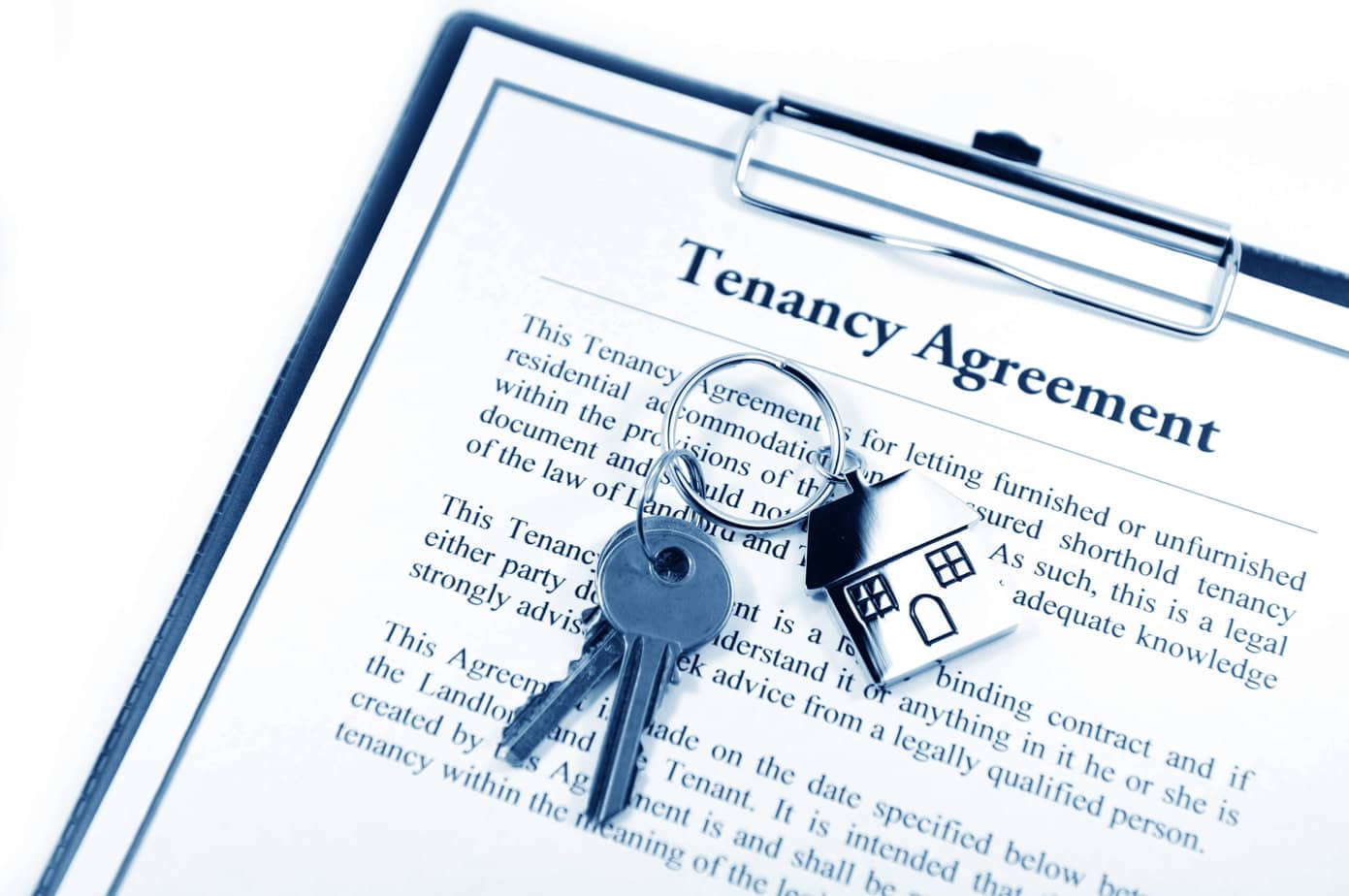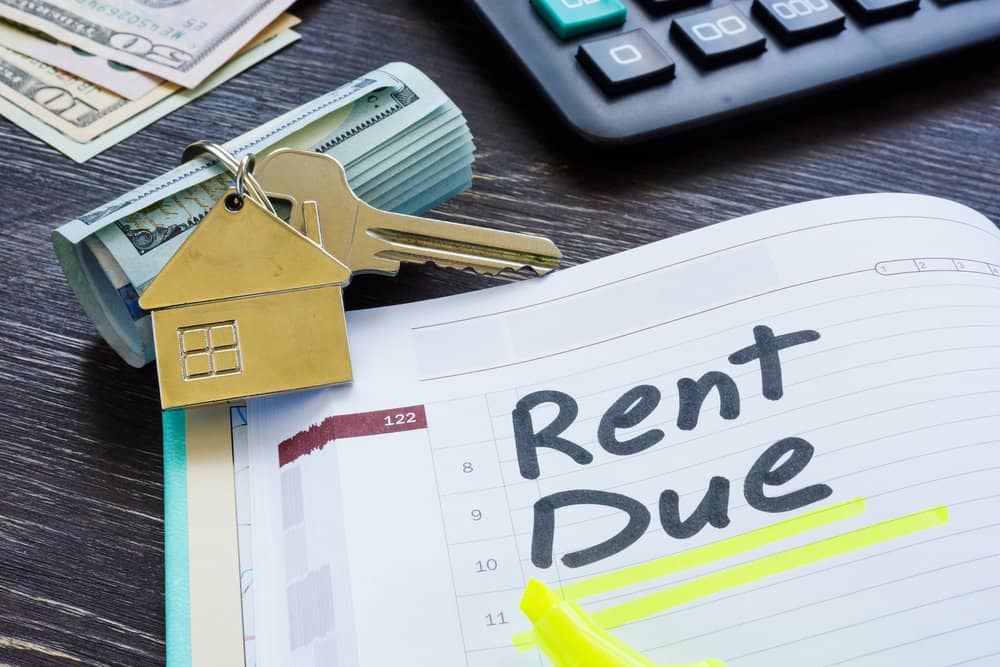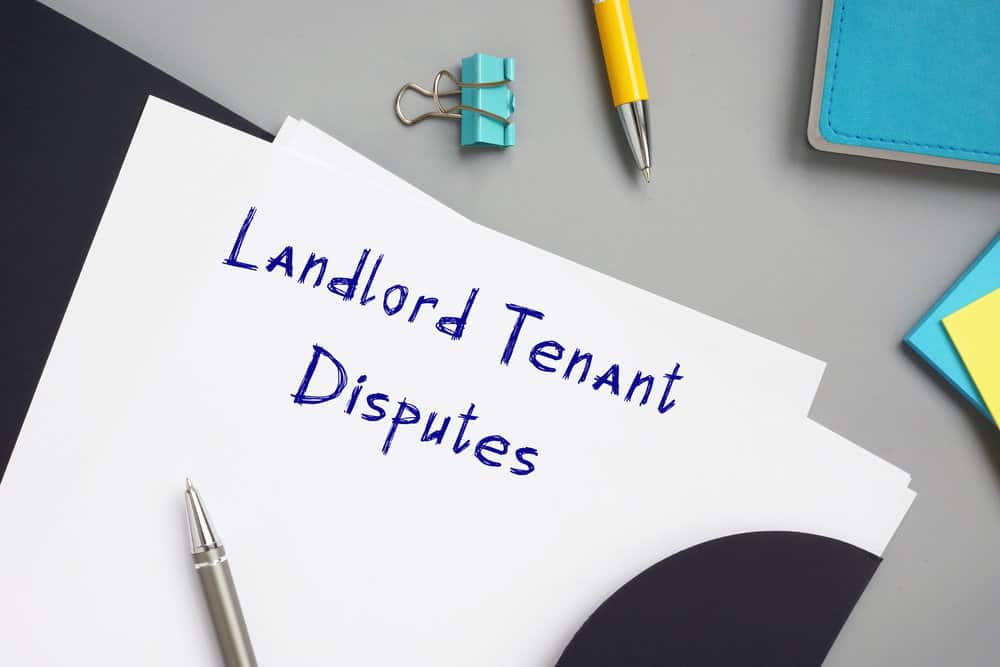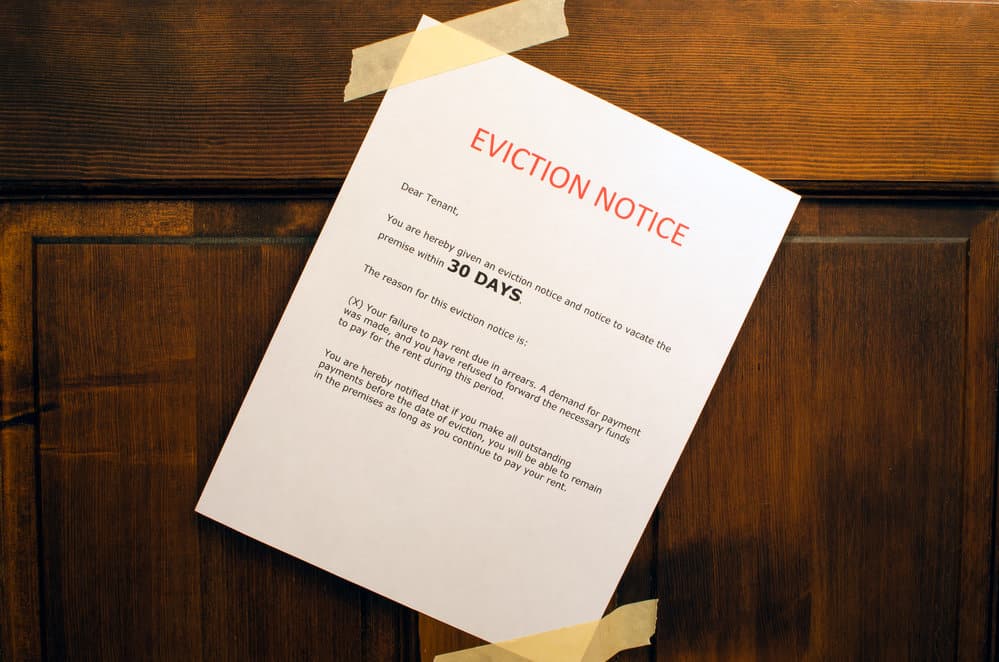Facing the consequences of not paying rent and moving out can be daunting and confusing for many tenants. Understanding the ramifications of such actions is essential to avoid finding oneself in precarious legal or financial situations. This article sheds light on the possible outcomes when tenants neglect their rent payment responsibilities and decide to move out.
Foremost, a tenant’s failure to pay rent could result in eviction, impacting their credit score and rental history. Such consequences can make it difficult for the individual to secure future housing, as landlords may be hesitant to rent to someone with a reputation for nonpayment. Additionally, the tenant may face legal action from the landlord, leading to further financial burdens and stress.
Understanding the legal implications and potential pitfalls of not paying rent and moving out is crucial for tenants to make informed decisions. By recognizing the potential consequences, one can better navigate the rental landscape and maintain a positive rental history. It’s essential for those in financial difficulty and anyone leasing property.
Understanding Lease Agreements
When renting a property, the landlord and tenant need to understand the terms of their lease agreement. A lease serves as a legally binding contract outlining the expectations and responsibilities of each party. Let’s discuss the three main types of lease agreements: written lease, oral agreement, and month-to-month tenancy.
Written Lease
A written lease is a formal, signed document between the landlord and the tenant that outlines the duration of the lease, the rent amount, and the rights and responsibilities of both parties.
- Duration: Usually, a written lease lasts for a fixed term, like one year or six months.
- Rent: Rent is typically due on a specific date each month, as stated in the lease.
- Rights and responsibilities: The lease should clearly state what the landlord and tenant can and cannot do, such as home modifications or subleasing.
- Security deposit: A written lease often requires the tenant to pay a security deposit upon signing, which may be refunded at the end of the lease term if no damage has occurred to the property.
Oral Agreement
An oral agreement is an informal arrangement between the landlord and tenant without a written document. While oral agreements can be legally binding, they can be difficult to enforce due to a lack of documentation.
- Duration: The terms and duration of an oral agreement can be vague or flexible.
- Rent: The rent amount might not be fixed, and payment dates might not be stipulated.
- Rights and responsibilities: As they aren’t explicitly documented, these aspects may lead to confusion or disputes between the landlord and tenant.
- Security deposit: An oral agreement may still include a security deposit, but tracking and returning the deposit can become tricky without the written lease.
Month-to-Month Tenancy
A month-to-month tenancy is an arrangement in which the lease renews automatically each month as long as both the landlord and tenant continue to meet their responsibilities. This type of leasing offers flexibility for both parties.
- Duration: As the name suggests, month-to-month tenancies continue monthly and can be terminated by either party, typically with a 30-day notice.
- Rent: Rent is ordinarily due each month but could be subject to change as agreed upon by both parties.
- Rights and responsibilities: Depending on the agreement, the rights, and responsibilities may be similar to a written lease or more flexible.
- Security deposit: A security deposit might still be required for a month-to-month tenancy, with a clear understanding of when and how it will be refunded upon termination of the leasing agreement.
It’s essential for both landlords and tenants to thoroughly understand their lease agreements to ensure a harmonious and legally compliant relationship throughout the rental experience. Written leases offer the most security, but oral agreements and month-to-month tenancies can provide flexibility if circumstances require it. Clear communication and a comprehensive understanding of rental terms and expectations are crucial for success regardless of the agreement type.
Nonpayment of Rent Consequences
Eviction Process
When a tenant fails to pay rent, the landlord may initiate the eviction process. This typically starts with a written notice that informs the tenant about the nonpayment and provides a specific period to rectify the situation. If the tenant fails to pay rent within this timespan, the landlord can file an eviction case in court. The tenant is then served with a summons, and a court date is set. If the judge rules in favor of the landlord, the tenant may be required to vacate the property within a specified timeframe.
Legal Action
Landlords may also take legal action against tenants for nonpayment of rent. This could include reporting the tenant’s nonpayment to a credit bureau, which could negatively impact the tenant’s credit score. Furthermore, landlords may withhold a portion or all of the tenant’s security deposit to cover unpaid rent, although specific regulations vary by jurisdiction.
Lawsuits and Small Claims Court
In some cases, landlords may sue tenants for nonpayment of rent. Depending on the amount owed and the jurisdiction, these cases may be handled in small claims court. In a lawsuit, the landlord can seek to recover unpaid rent and any additional costs and damages they may have incurred due to the tenant’s nonpayment. This could include attorney’s fees, court costs, and other related expenses.
- Tenant: Obligated to pay rent as agreed in the lease agreement
- Nonpayment of rent: May result in eviction, legal action, or a lawsuit
- Eviction: Legal process initiated by the landlord to remove a tenant from the property
- Legal action: May include reporting the tenant’s nonpayment to a credit bureau or withholding the security deposit
- Lawsuit: Landlord may sue tenant for unpaid rent and additional costs incurred
- Small claims court: Handles cases involving smaller amounts of money, often used for rent disputes
Tenants must understand the consequences of not paying rent and the potential legal outcomes that can arise from it. It is crucial for tenants to stay informed about their rights and responsibilities and to abide by the terms of their lease agreement to avoid these negative outcomes.
Security Deposits and Damages
Withholding Rent
Tenants may consider withholding rent if the landlord fails to address essential repairs or maintain a comfortable living environment. But before doing so, tenants should first understand their rights and responsibilities. Usually, the tenant must first notify the landlord about necessary repairs and provide a reasonable time for them to address the issue. If the landlord does not comply, the tenant may place their rent payments into an escrow account. This action can help protect the tenant from eviction due to non-payment.
In some cases, withholding rent may lead to penalties or even eviction. The landlord may initiate legal action to recover unpaid rent if the tenant does not follow proper procedures or lacks sufficient grounds.
Breaking the Lease
When a tenant breaks their lease, they may face financial repercussions. One significant consequence could be losing their security deposit. The landlord has the right to claim the security deposit to cover unpaid rent or any damages caused by the tenant. The tenant’s liability for damages can extend beyond the security deposit; the landlord may seek additional compensation for excessive damage to the property.
To minimize potential loss, tenants should review their lease agreement and understand the conditions under which they may break the lease without penalty. In some cases, exceptional circumstances (e.g., job loss or family emergency) may allow the tenant to negotiate with their landlord for early termination of the lease without significant penalties.
Remember, the security deposit is collateral for any unpaid rent or damages. Once the tenant vacates the property, the landlord will perform an inspection and assess any required repairs or cleanup. A written itemized statement detailing costs must be provided to the tenant. If the tenant disagrees with the deductions, they may pursue legal action to recover their deposit.
Tenants and landlords should always communicate openly and work together to handle any issues that arise during the rental period. Understanding their rights and responsibilities means both parties can avoid unnecessary disputes and work towards a fair resolution.
Property Maintenance and Repairs
Wear and Tear
A tenant is responsible for keeping the property clean and in good condition. However, over time, wear and tear on the property is inevitable. Generally, the landlord is responsible for addressing wear and tear issues, such as repainting walls or replacing worn-out carpets.
Both tenants and landlords must clearly understand each party’s responsibilities regarding wear and tear. Effective communication can help maintain a healthy and positive relationship between both parties.
Emergency Repairs
When it comes to emergency repairs, such as heating system failures or water leaks, the landlord is usually responsible for addressing these issues promptly. Tenants should notify their landlords immediately in case of an emergency, and landlords should act swiftly to ensure the safety and comfort of their tenants.
Here are some responsibilities for tenants and landlords regarding property maintenance and emergency repairs.
| Responsibility | Tenant | Landlord |
|---|---|---|
| Wear and Tear | Report issues to landlord | Address and repair issues |
| Emergency Repairs | Notify landlord immediately | Act swiftly and appropriately |
By understanding their roles and responsibilities, tenants and landlords can help maintain the property and ensure a positive living environment.
Mitigating Issues and Communication
Establishing a Healthy Relationship
A healthy relationship between a landlord and tenant is essential for a smooth rental process. Both parties should maintain open lines of communication and treat each other with respect and professionalism. Establishing a positive relationship from the start is important by setting clear expectations regarding rent payment, lease terms, and property maintenance. Landlords may consider providing their tenants with a welcome packet containing helpful information such as contact details and property guidelines. Similarly, tenants should read and understand their lease agreements and pose any questions before moving in.
Addressing Problems Early
Detecting and addressing potential issues early can prevent larger problems from arising. Tenants should notify their landlords about any maintenance or repair needs as soon as they occur. On the other hand, landlords should address these concerns promptly, ensuring that the tenant is satisfied with the resolution. When rent payment is delayed, tenants should communicate their situation to the landlord beforehand. This way, they can work together to find a mutually agreeable solution, such as a temporary rent reduction or a payment plan. By addressing issues early and maintaining open communication, both parties can avoid severe consequences like eviction, property damage, or a ruined landlord-tenant relationship.
Conclusion
Several consequences may arise if a tenant fails to pay rent and decides to move out. First and foremost, landlords have the legal right to pursue unpaid rent through various means. They may:
- Attempt to collect the debt directly from the former tenant
- Utilize a collections agency to recover the funds
- File a lawsuit to recover the owed rent
Furthermore, their failure to pay rent could negatively affect the tenant’s credit score. Typical consequences for credit scores can include:
- Lowering their credit score
- Difficulty in obtaining new credit
- Challenges securing future rental agreements
Additionally, the tenant may face challenges finding a new place to live, as potential landlords will likely review their rental history. With a history of unpaid rent, many landlords may be hesitant to rent to them. Keep in mind that these effects are incredibly long-lasting for years to come.
Lastly, depending on the lease terms and the laws in their jurisdiction, the tenant might lose their security deposit or face eviction proceedings even after moving out. It is important for tenants to understand their rights and responsibilities regarding rent payments and to seek legal advice if necessary.
In summary, not paying rent and moving out have several potential negative consequences for tenants. It is in their best interest to communicate with their landlord, fulfill their financial obligations, and maintain a good rental history.
FAQs
What happens if I don’t pay rent and move out?
If a tenant doesn’t pay rent and moves out, the landlord may pursue legal action to recover the unpaid rent. Landlords can file a lawsuit for nonpayment of rent, and if they win the case, the tenant may be required to pay the unpaid rent and additional charges such as court fees and late fees.
Can I be evicted for not paying rent?
Yes, a landlord has the right to evict a tenant for nonpayment. The eviction process varies depending on local laws, but generally, the landlord should give the tenant a notice to pay rent or quit. If the tenant doesn’t pay the outstanding rent or move out within the given time frame, the landlord can file an eviction lawsuit. If the landlord wins the lawsuit, the tenant must legally leave the property.
What are the consequences of moving out without paying rent?
Moving out without paying rent can significantly impact a tenant’s credit history, rental history, and ability to rent in the future. Additionally, the landlord may file a civil lawsuit to recover the unpaid rent, and if they win the case, the tenant may be responsible for the unpaid rent, court fees, and late fees.
How can I resolve unpaid rent issues?
Communication between the tenant and landlord is crucial to resolve unpaid rent issues. If tenants struggle to pay rent, they can negotiate a payment plan or request a temporary rent reduction. It’s essential to document any agreements in writing to avoid future disputes.
Can landlords report unpaid rent to credit bureaus?
Yes, landlords can report unpaid rent to credit bureaus, negatively affecting a tenant’s credit score. Some landlords may also use collection agencies to recover the unpaid rent, and these agencies can also report the debt to credit bureaus. Maintaining a good credit score is vital for securing loans, credit cards, and future rental properties.






